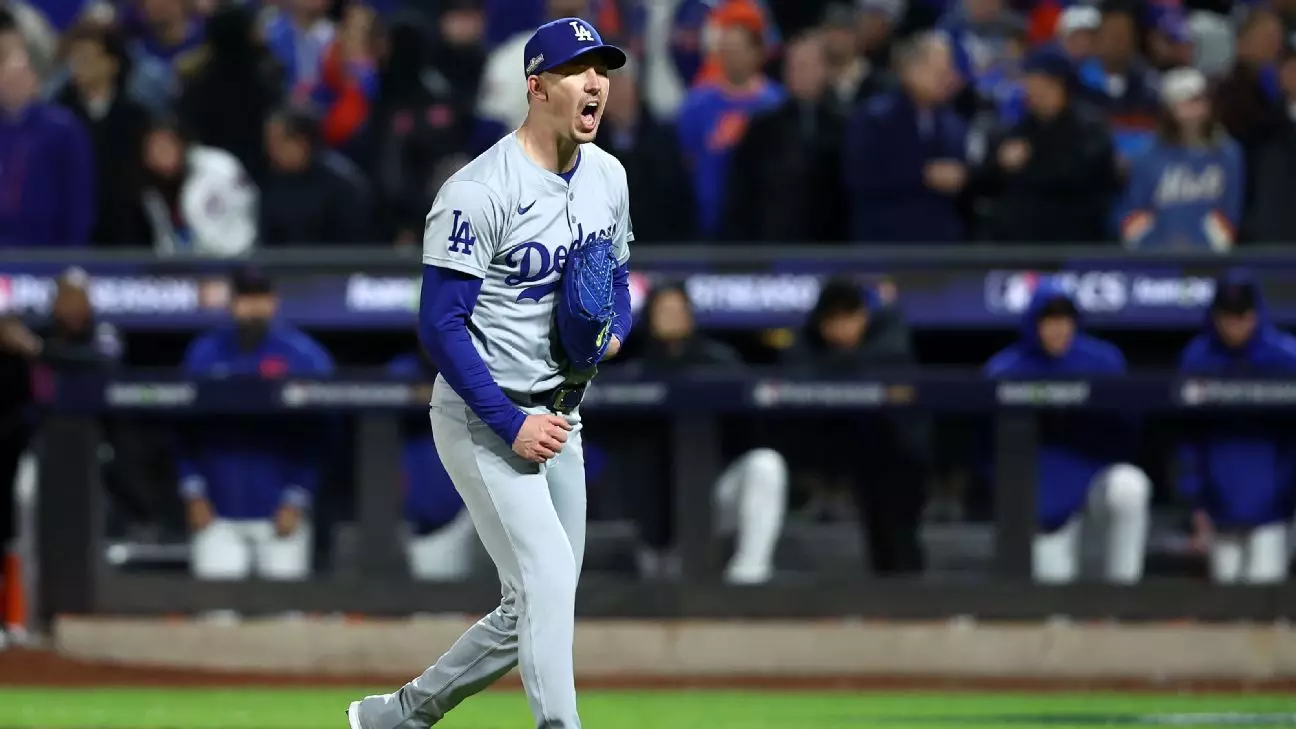As the Los Angeles Dodgers gear up to face the New York Yankees in Game 3 of the playoffs, all eyes are on the pitching lineup and how it could affect the series’ outcome. Walker Buehler, the Dodgers’ seasoned pitcher, is set to take the mound at Yankee Stadium, showcasing the strategic foresight that has been characteristic of the team’s management this postseason. With the game scheduled directly after a day of rest, the decision to start Buehler instead of opting for a bullpen game emphasizes the Dodgers’ commitment to maximizing their chances in crucial matchups while positioning themselves for future games.
Buehler’s journey has been marked by challenges, particularly following his recovery from a second Tommy John surgery. This critical comeback has not only necessitated a physical transformation but also demanded an evolution in his pitching style. Known for his fastball, Buehler has had to rely on his curveball more frequently, indicating an adaptability that is vital in high-pressure situations. In his last outing against the Mets, he demonstrated this shift effectively by maintaining opponent silence through four innings, reflecting a strategic approach that could spell the difference for the Dodgers in a tightly contested series.
The upcoming clash between Buehler and the Yankees’ Clarke Schmidt sets the stage for a fascinating duel. Schmidt, a right-hander who has recently proven himself as a reliable starter, presents a unique challenge for Buehler. Both pitchers carry substantial stakes in this game, as each team’s success could hinge on their performance. Here lies an interesting juxtaposition: Buehler has experience and pedigree in the playoffs, while Schmidt represents the promising future of the Yankees’ rotation. This match-up is emblematic of the broader narrative of the playoffs, where seasoned veterans battle against emerging talents.
While Game 3 remains a focal point, the Dodgers’ strategy also reflects an eye toward Game 4. With the team planning a bullpen day following Game 3, the Dodgers are balancing immediate needs with future contingencies. This strategic decision becomes all the more important considering that the stakes escalate in postseason play. The choice to keep Buehler ready for a potential Game 7, should the series stretch that far, speaks volumes about the organizational trust in his abilities and the forethought that governs playoff strategies.
Dodgers manager Dave Roberts’ confidence in Buehler underscores a critical element of success in high-stakes sports: belief. When Roberts states, “The road isn’t going to faze him,” it not only reinforces the importance of mental fortitude in baseball but also exemplifies the leadership dynamics inherent in team sports. Conversely, Yankees manager Aaron Boone’s choice to start rookie Luis Gil in Game 4 highlights a reliance on developing talent under pressure, further enriching the narrative of this playoff series.
Ultimately, both teams are navigating the delicate balance of performance, pressure, and strategy in pursuit of championship glory, making this postseason one to watch closely. The decisions surrounding pitching reflect not only individual strengths but the intricate lacework of team strategy that defines playoff success.

